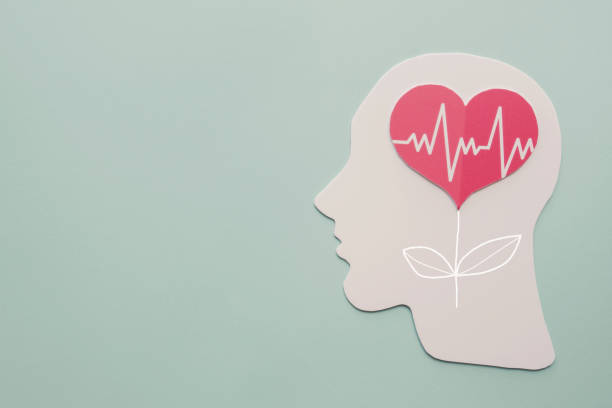How to Improve Mental Health in 10 Days
Improve your mental health with these effective tips and strategies. This comprehensive guide covers everything from exercise and nutrition to mindfulness, social support, and therapy. Discover how to enhance your well-being and achieve a more balanced and fulfilling life.

How to improve mental health in 10 Days
Introduction

Mental health is an important aspect of our overall well-being, and it's essential to take care of it just as we do with our physical health. Our mental health plays a crucial role in how we think, feel, and behave. It impacts our ability to handle stress, make decisions, and form relationships with others. Unfortunately, many people struggle with mental health issues, and it's crucial to take steps to improve and maintain our mental well-being.
In recent years, there has been a growing awareness of the importance of mental health. More people are seeking help for mental health issues, and there is greater understanding and acceptance of mental illness. However, despite this progress, many people still struggle with mental health challenges, and there is still much work to be done to improve mental health outcomes.
There are many ways to improve our mental health, and it's essential to find what works for us. Everyone's mental health needs are different, and what works for one person may not work for another. However, there are some general steps that we can take to promote good mental health and well-being.
In this article, we'll explore some effective ways to improve mental health, from getting enough sleep and exercise to developing a support network and seeking professional help. Whether you're dealing with mental health challenges or simply want to maintain good mental health, these tips can help you achieve your goals and live a happier, healthier life.
Exercise

Exercise is an important aspect of maintaining good mental health. Studies have shown that regular exercise can reduce the symptoms of anxiety and depression, improve mood and cognitive function, and promote overall feelings of well-being. Exercise has also been shown to reduce stress levels and improve sleep quality, both of which can have a positive impact on mental health.
One way to incorporate exercise into your daily routine is to engage in moderate-intensity aerobic exercise for at least 30 minutes a day, five days a week. This can include activities such as brisk walking, jogging, cycling, swimming, or dancing. Resistance training, such as weightlifting or bodyweight exercises, can also be beneficial for building strength and improving overall fitness.
It's important to find an exercise routine that works for you and that you enjoy. This can help ensure that you stick with it over the long term. Additionally, it's a good idea to gradually increase the intensity and duration of your exercise routine over time to avoid injury and burnout.
If you have a busy schedule or find it difficult to make time for exercise, try breaking it up into shorter sessions throughout the day. Even 10-15 minutes of exercise can be beneficial for your mental health. And if you're not sure where to start, consider talking to a healthcare professional or a certified personal trainer who can help you develop a safe and effective exercise plan tailored to your individual needs and goals.
In summary, exercise can play a significant role in improving mental health. By incorporating moderate-intensity aerobic exercise and resistance training into your routine, you can reduce symptoms of anxiety and depression, improve mood and cognitive function, reduce stress levels, and improve sleep quality. Finding an exercise routine that works for you and gradually increasing the intensity and duration over time can help you achieve long-term mental health benefits.
Nutrition

Nutrition plays a crucial role in maintaining and improving our mental health. The food we eat can have a significant impact on our mood, cognitive function, and overall mental wellbeing. A healthy and balanced diet can improve our ability to concentrate, regulate our mood, and reduce symptoms of anxiety and depression.
A diet rich in fruits, vegetables, whole grains, lean proteins, and healthy fats can help nourish the brain and support mental health. Foods that are high in nutrients like vitamins B, C, D, and E, as well as omega-3 fatty acids and antioxidants, are particularly beneficial for our mental wellbeing.
It's essential to avoid or limit the consumption of processed and junk foods, as they can negatively impact our mental health. Foods high in sugar and unhealthy fats can lead to inflammation in the brain, affecting our mood, and increasing the risk of depression and anxiety.
Additionally, it's crucial to maintain a regular eating schedule, as skipping meals can lead to a drop in blood sugar levels, which can negatively impact our mood and energy levels.
Some of the foods that can help improve mental health include:
Fatty fish: Fatty fish like salmon, mackerel, and sardines are rich in omega-3 fatty acids, which have been shown to improve mood and reduce symptoms of depression.
Leafy greens: Leafy greens like spinach, kale, and Swiss chard are rich in folate, a B-vitamin that helps regulate mood and reduce symptoms of depression.
Nuts and seeds: Nuts and seeds are rich in healthy fats, protein, and fiber, which can help stabilize blood sugar levels and improve mood.
Whole grains: Whole grains like oats, quinoa, and brown rice are rich in fiber, which can help regulate blood sugar levels and improve mood.
Berries: Berries like blueberries, raspberries, and strawberries are rich in antioxidants, which can help protect the brain from oxidative stress and improve cognitive function.
By incorporating these foods into our diet and avoiding processed and junk foods, we can improve our mental wellbeing and support our overall health.
Mindfulness

Mindfulness is a practice that involves being present in the moment and paying attention to one's thoughts and feelings without judgment. It is a state of awareness that helps individuals become more attuned to their emotions and experiences, and can have a positive impact on mental health.
There are many ways to practice mindfulness, including meditation, yoga, deep breathing, and other relaxation techniques. These practices can help individuals reduce stress and anxiety, improve focus and concentration, and enhance feelings of well-being.
Research has shown that mindfulness can also help individuals with a variety of mental health conditions, including depression, anxiety, and post-traumatic stress disorder (PTSD). In addition, practicing mindfulness can improve overall cognitive function and may even reduce the risk of developing dementia and other age-related cognitive impairments.
To incorporate mindfulness into your daily routine, start by setting aside a few minutes each day for meditation or relaxation exercises. Focus on your breath and allow your thoughts to pass without judgment or attachment. As you become more comfortable with mindfulness practices, you can increase the amount of time you spend in meditation or expand your repertoire of relaxation techniques.
In addition to formal mindfulness practices, it can also be helpful to incorporate mindfulness into your everyday activities. For example, you can practice mindfulness while walking, eating, or even washing dishes by paying attention to your senses and being fully present in the moment.
Overall, mindfulness is a powerful tool for improving mental health and well-being. By practicing mindfulness regularly, individuals can cultivate a greater sense of awareness and connection with themselves and the world around them.
Social Support
Social support is an important aspect of improving and maintaining good mental health. It refers to the help and assistance that one receives from their family, friends, and community. Having a strong support system is crucial for coping with stress, anxiety, depression, and other mental health issues.
One of the main benefits of social support is that it provides a sense of belonging and connection with others. It can help individuals feel less isolated and alone, which is especially important during times of stress or hardship. Social support can also provide a source of emotional support, advice, and encouragement, which can help individuals cope with difficult situations.
There are many different types of social support, including emotional, informational, and tangible support. Emotional support involves providing empathy, love, and encouragement to someone who is going through a difficult time. Informational support involves providing advice, guidance, and information to help someone make decisions or solve problems. Tangible support involves providing practical assistance, such as help with household chores or financial support.
Research has shown that social support can have a positive impact on mental health. Studies have found that individuals who have strong social support networks are less likely to experience symptoms of depression and anxiety. They are also more likely to engage in healthy behaviors, such as regular exercise and a healthy diet.
There are many ways to build and maintain social support networks. Some strategies include:
- Building relationships with family and friends: This involves spending time with loved ones, communicating regularly, and offering support when needed.
- Joining groups or clubs: This can provide opportunities to meet new people with similar interests and values.
- Participating in community activities: This can help individuals feel more connected to their community and give back to others.
- Seeking professional support: This may involve talking to a therapist or counselor, joining a support group, or attending group therapy sessions.
In conclusion, social support is an important aspect of improving and maintaining good mental health. Building and maintaining strong relationships with family, friends, and community members can provide a sense of belonging and connection, as well as emotional, informational, and tangible support. Seeking professional support can also be beneficial for those who are struggling with mental health issues.
Therapy

Therapy is a mental health treatment that can help people deal with emotional, psychological, or behavioral problems. It involves talking to a trained mental health professional who can guide and support an individual in identifying, understanding, and managing their thoughts, feelings, and behaviors. Therapy can be helpful for people with a wide range of mental health conditions, including anxiety disorders, depression, bipolar disorder, post-traumatic stress disorder (PTSD), and eating disorders.
There are different types of therapy available, including cognitive-behavioral therapy (CBT), psychodynamic therapy, and interpersonal therapy, among others. The type of therapy a person receives depends on their specific needs, the severity of their condition, and their preferences.
In therapy, a person is encouraged to explore their thoughts, feelings, and behaviors in a safe and non-judgmental environment. The therapist may use a range of techniques, such as asking open-ended questions, providing feedback, and offering support and guidance. They may also suggest specific strategies or exercises to help a person manage their symptoms or cope with challenging situations.
One of the benefits of therapy is that it can help people develop new coping skills and improve their problem-solving abilities. It can also provide a sense of validation and support, which can be especially important for people who are struggling with mental health issues. In addition, therapy can help people build stronger relationships and improve their overall quality of life.
It is important to note that therapy is not a one-size-fits-all solution, and it may not work for everyone. It can also take time to see results, and a person may need to try different therapists or approaches before finding the right fit. However, for many people, therapy can be an effective way to improve their mental health and well-being.
Conclusion

In conclusion, mental health is a crucial aspect of overall well-being, and it requires active efforts to maintain and improve it. As discussed in this article, several approaches can help improve mental health, including exercise, nutrition, mindfulness, social support, and therapy.
Exercise has been shown to have positive effects on mental health by reducing stress, anxiety, and depression. It also helps to boost self-esteem and cognitive function.
Nutrition plays a significant role in mental health as a balanced and healthy diet can help regulate mood and reduce the risk of mental health disorders. Nutrients such as omega-3 fatty acids, B vitamins, and magnesium have been found to have positive effects on mental health.
Mindfulness practices, such as meditation and deep breathing, can help to reduce stress, anxiety, and depression while promoting emotional regulation and resilience.
Social support is essential for maintaining good mental health as having a support network of family, friends, and other loved ones can help reduce feelings of isolation and loneliness, which can negatively impact mental health.
Finally, therapy can be an effective tool for improving mental health, particularly for those experiencing mental health disorders. It provides a safe and supportive environment to discuss and work through challenging emotions and experiences with a trained professional.
It is essential to note that improving mental health is not a one-size-fits-all approach, and what works for one person may not work for another. However, incorporating these approaches into daily life can help promote mental health and well-being. Additionally, seeking help from a mental health professional can provide tailored strategies for improving mental health.
Overall, taking care of mental health is crucial for leading a fulfilling and happy life. It requires intentional efforts to maintain and improve mental health, but the benefits are well worth it.
Author Advice

General tips on maintaining good mental health based on research and expert advice. Here are some key takeaways:
- Prioritize self-care: Take care of your physical health by exercising, eating a healthy diet, and getting enough sleep. Take time to do activities you enjoy, and practice self-compassion and self-acceptance.
- Build social connections: Nurture relationships with friends and family, join social groups or clubs, and volunteer in your community.
- Practice mindfulness: Learn mindfulness techniques such as meditation or deep breathing exercises to help manage stress and increase awareness of the present moment.
- Seek professional help: If you're struggling with mental health issues, don't hesitate to seek help from a mental health professional. Therapy and medication can be effective in treating many mental health conditions.
Remember, taking care of your mental health is just as important as taking care of your physical health. Make it a priority in your life, and don't be afraid to ask for help when you need it.



Post a Comment